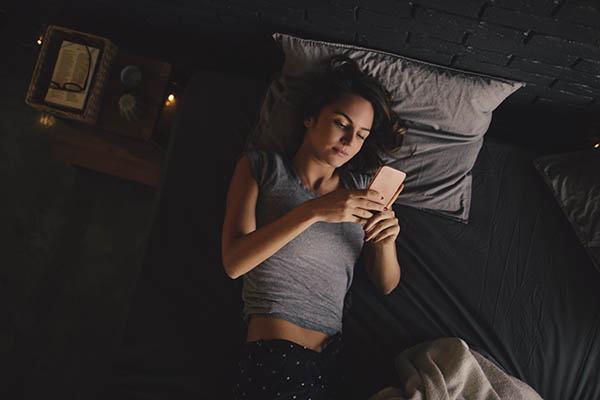How Your Circadian Rhythm Affects Sleep

Fly to another time zone or switch to the night shift, and you’ll undoubtedly feel the pull of your circadian rhythm.
The circadian rhythm — a.k.a., your “internal clock” — is much stronger than the one hanging on the wall.
You may find yourself nodding off just when everyone else is sitting down for dinner, waking up hours before sunrise, or getting hungry in between typical meal times.
We like to think we’re flexible and adaptable, but it can take days for the body to fully adjust when we get off track.
So what makes your internal clock tick so steadily?
What is circadian rhythm?

What Is Circadian Rhythm?
“The circadian rhythm is your 24-hour body clock that regulates most of your basic bodily functions such as sleepiness, wakefulness, various hormonal functions, and hunger,” says Dr. Nikola Djordjevic, M.D.
The circadian rhythm is programmed within humans at a cellular level and has developed over the course of evolution to allow us to adapt our behaviors to our environment.
The sleep-wake cycle, which is regulated by the circadian rhythm, allowed our most primitive ancestors to hunt, gather, and socialize in the daylight.
At night, while they slept and hid from predators, their bodies rested and performed vital biological functions.
Today, we are less reliant upon natural sunlight to feed and protect ourselves, but our circadian rhythm is embedded in our DNA.
The majority of the population is awake during the day and sleeps at night.

How Does Circadian Rhythm Impact Sleep?
“Our circadian rhythm affects sleep mostly through the timed release of melatonin, the key sleep hormone,” says Dr. Leigha Saunders, N.D..
“Melatonin is produced by the pineal gland in the brain, which will increase its production of melatonin as the ‘eyes’ and center of the brain known as the suprachiasmatic nucleus is exposed to increasing amounts of darkness in the evening and overnight,” she explains.
In other words, daylight suppresses the production of melatonin, helping to keep us awake.
At night, the pineal gland releases melatonin, which induces sleep.
Unfortunately, for most people, the circadian rhythm is compromised on a daily basis by what Dr. Saunders refers to as “light lag.”
“Blue light emitted from screens, devices, and LED light bulbs sends the same signal to our pineal gland that it’s still daytime,” she explains.
Studies have shown that artificial light can also suppress melatonin and lead to sleep disruptions.
To ensure a restful night’s sleep, Dr. Saunders recommends going screen-free at least an hour or two before bedtime.
What Else Does Your Circadian Rhythm Impact?
Beyond sleep, what is circadian rhythm in charge of? While we typically associate the circadian rhythm with melatonin and sleep, the circadian rhythm actually plays a much bigger role in our biology, explains Dr. Saunders.
“The circadian rhythm oversees and regulates other bodily functions and hormones, like our appetite, meal timing, and digestion, as well as the release of cortisol (our main stress hormone), insulin (the hormone that helps regulate blood sugar) and even our sex hormones like estrogen, progesterone and DHEA,” she says.
Do you feel most creative in the morning but prefer evening workouts? Or vice versa?
“The circadian rhythm also plays a role in when we feel most productive and when we feel a natural inclination to exercise,” she adds.
Can You Adjust or Reset Your Internal Clock?
It is possible to adjust your internal clock, but it will take some time. Dr. Saunders recommends gradually adjusting your wake-up time and, subsequently, your bedtime.
Once you’ve found an ideal schedule, stick to it.
If you’re struggling to reset your internal clock, take stock of your caffeine consumption — Dr. Saunders recommends finishing your last cup of joe at least 12 hours before you turn in for the night.
For some people, Dr. Djordjevic says, bright light therapy and melatonin supplements can be helpful, but be sure to speak with your health-care provider before trying either option.
